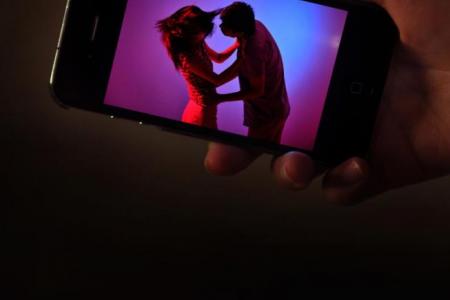The modern-day disease: Posting wild accusations for 'likes'
Just in June, a netizen uploaded a TikTok video of a couple acting lovey-dovey on a domestic flight in the United States.
The netizen claimed the couple were having an extra-marital affair as the man was spotted with what looked like a wedding band.
The TikTok user did not know the couple personally but heard them address each other and she included the names in her captions for the videos that have since been removed.
She even posted a video showing the couple's empty seats, explaining that they had gone into the toilet.
Japanese carriers remind passengers not to take photographs or record videos on flight without permission of the people who can be seen in the photo or video frame.
But most airlines allow kaypoh behaviour like that of the TikTok user.
The New York Times quoted Cornell University's Professor Brooke Erin Duffy, who researches social media, as saying that people are turning the camera on others to "mine not just our own lives for content, but the lives of those around us”.
“The boundaries between personal and professional, between celebrity and ordinary have slipped away,” Prof Duffy pointed out.
Content creator Tamika Turner slammed the TikTok videos and those who doxxed the couple in the videos.
“Your only allegiance is to your own entertainment,” the 31-year-old said of the netizens who hailed the sneaky recording as an act of feminism.
“I think wanting engagement is morally neutral, but some creators do it through building community, and others do it through shock and outrage.
“There is a cycle where someone puts out content and if they get that engagement on negative content, then they’ll continue to make negative content."
Get The New Paper on your phone with the free TNP app. Download from the Apple App Store or Google Play Store now



